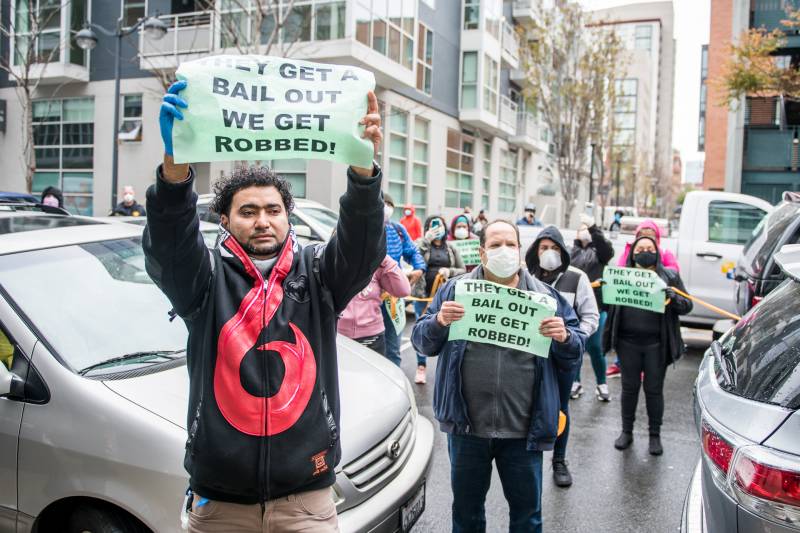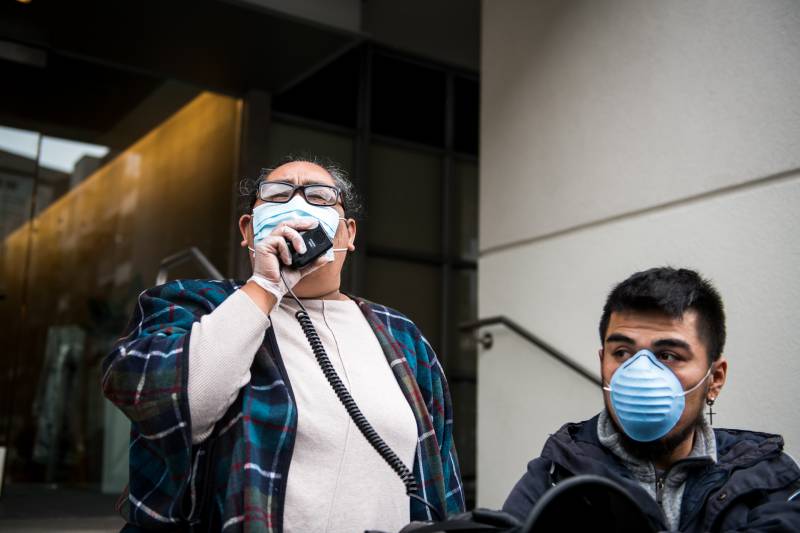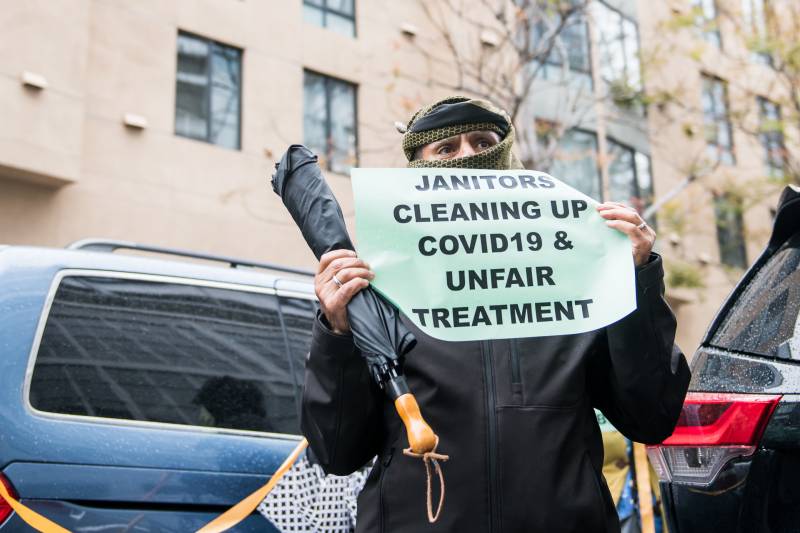Updated April 7.
Scores of janitors rallied in San Francisco Monday to protest abrupt cutbacks in their hours cleaning Lyft’s corporate headquarters during the coronavirus pandemic.
Citing the importance of their jobs — to clean and disinfect during the current public health crisis — the group blocked off Berry Street in front of Lyft’s headquarters and waved signs reading, “Essential does not equal exploited.”
Under the state’s shelter-in-place orders, janitorial workers are classified as essential in many situations. At the same time, businesses considered non-essential have had to shut down, while many that remain open have had to scale back on operations and staffing.
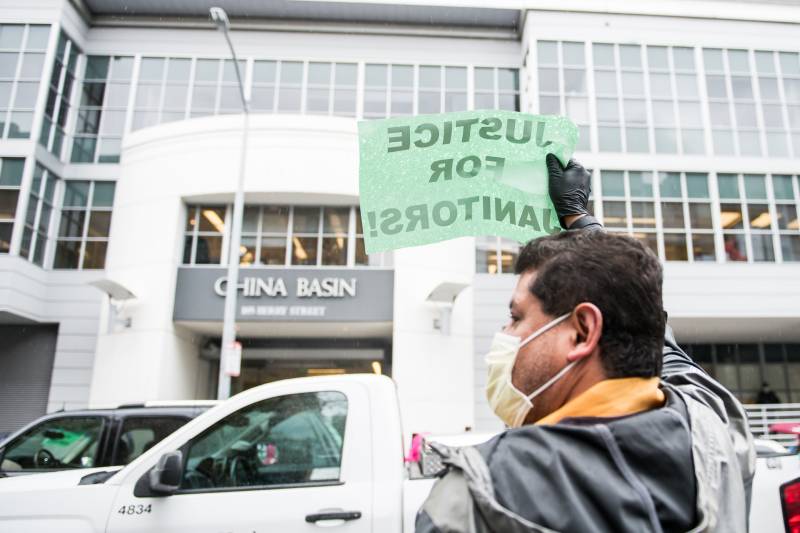
Last month, 63 janitors who work for Service By Medallion, the janitorial employer that contracts with Lyft, were informed via text messages that they would only get two days of work per month in the coming months, said Victoria Ramirez, a representative with the union SEIU Local 87.
“What could you do with two days a month? You have rent, you have bills,” said Ramirez, whose union represents janitors throughout San Francisco. “Just because they gave us an extension to pay rent doesn't mean that we're not going to pay any rent.”
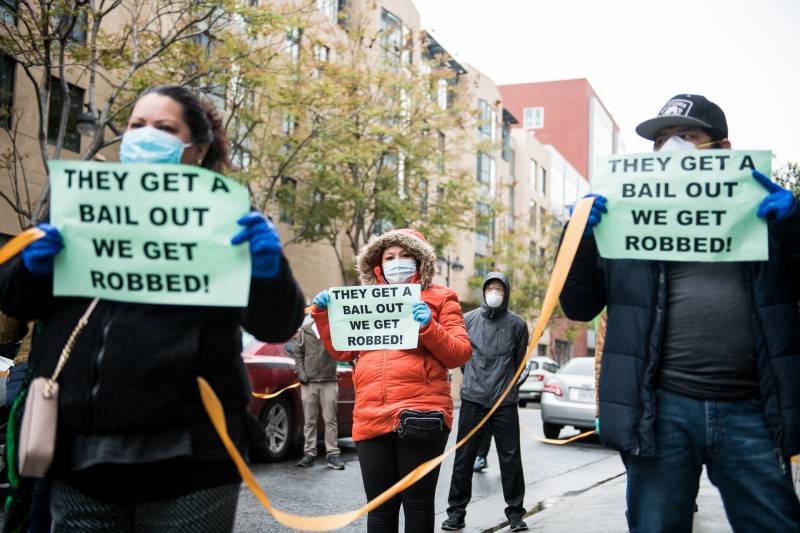
“We need food on our tables for our families,” she added.
Service By Medallion declined to comment, saying that they are still in negotiations with their staff.
In an official statement, Lyft said it supports the janitors and is committed to keeping as many people working as possible.
"These are unprecedented times for everyone and in addition to supporting our local janitors, we are also working to support and subsidize the two million drivers on the platform who are also struggling and are the lifeblood of the company," Lyft said in an emailed statement.
At Monday’s rally, janitors and their supporters wore face masks and gloves and stood at least six-feet apart to observe social distancing guidelines. Many held signs reading, “They get a bail out, we get robbed,” referring to provisions in the recently enacted federal stimulus bill to support businesses and their workers.
